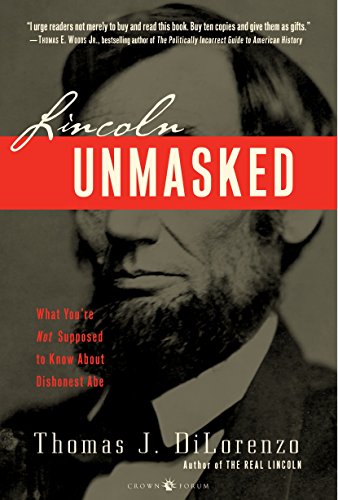According to most historical accounts, John Wilkes Booth, Abraham Lincoln’s assassin, perished shortly after being shot inside a burning barn in Virginia nearly 150 years ago. But tales of a man resembling Booth pop up in Glen Rose, Texas, and later in Granbury, starting five years after the April 14, 1865, assassination of the president.
Stories of Booth’s alleged miraculous escape are exhumed every few years to play again in the media. Booth, a Shakespearean actor, probably would have loved the attention.
Most historians don’t have a problem with the government’s identification of Booth’s body in 1865. A soldier reportedly shot him silhouetted inside a burning barn at Garrett’s tobacco farm in Virginia on April 26, and he died several hours laters.
 Lincoln Unmasked: What...
Best Price: $5.95
Buy New $9.85
(as of 07:10 UTC - Details)
Lincoln Unmasked: What...
Best Price: $5.95
Buy New $9.85
(as of 07:10 UTC - Details)
But here’s where the details of the accounts begin to diverge. Two lieutenants at the scene said the body was Booth’s, but a sergeant and a trooper stated that the man who died had freckles and red hair and was not Booth.
 The Real Lincoln: A Ne...
Best Price: $4.25
Buy New $7.48
(as of 07:05 UTC - Details)
The Real Lincoln: A Ne...
Best Price: $4.25
Buy New $7.48
(as of 07:05 UTC - Details)
Booth had a clear complexion and jet-black hair and, as is described in some historical accounts, broke his left leg when his spur caught in a decorative flag as he leapt from the president’s box to the stage at Ford’s Theatre the night he shot Lincoln. In some versions of the story, the man shot to death at Garrett’s farm had a broken right leg. A high degree of secrecy surrounded the hurried autopsy and initial burial in 1865, contributing to the mystery. Ultimately, over the next four years, what most historians say was Booth’s body was twice exhumed and twice reburied.
Meanwhile, in 1870, a handsome, black-haired stranger took a job as a storekeeper in Glen Rose. He also performed in amateur theatrical productions and astounded the residents with his acting skill and knowledge of Shakespeare. The man introduced himself as John St. Helen and had a gimpy left leg. When he discovered a year later that a large wedding was scheduled to take place in Glen Rose attended by many army officers and U.S. marshals, St. Helen quietly departed.
Not long afterward, the man resurfaced in Granbury, where he fell in with a lawyer named Finis L. Bates. In Granbury, St. Helen worked as a bartender in a saloon, but his friend Bates noticed that the man never touched a drop of u201Cdemon rum,u201D or liquor, except on April 14 – the anniversary of Lincoln's assassination – at which time he drank himself into a stupor. The significance of these yearly binges didn't register with Bates until he was called to St. Helen's bedside one night where he found his friend desperately ill. A doctor had informed St. Helen that he might not last the night. In weakened whispers the dying man spoke to his friend.
September 4, 2009





